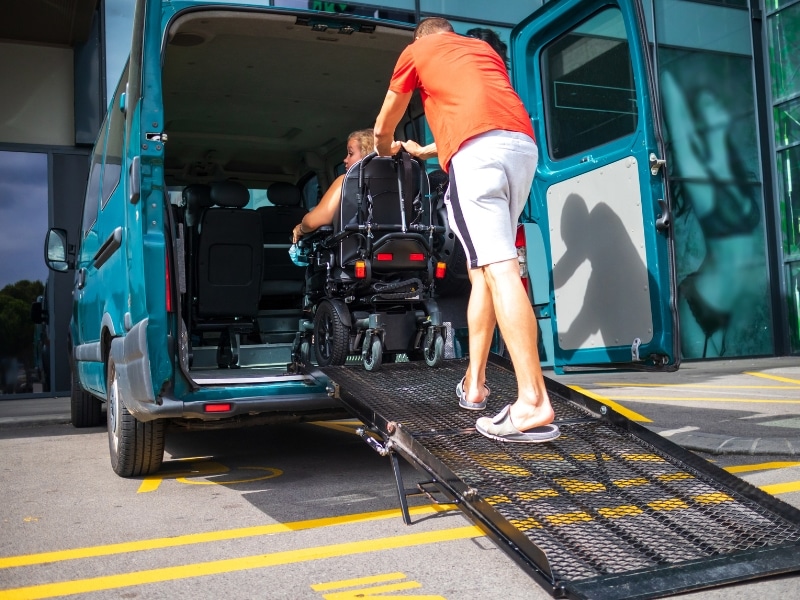
The National Disability Insurance Scheme (NDIS) supports individuals with disabilities. One of the NDIS’s critical aspects is its focus on personal activities, which are vital for promoting independence and enhancing the quality of life. This article will discuss personal activities covered by the NDIS, how to access support, and tips for maximising funding.
What are personal activities supported by the NDIS?
Personal activities encompass a range of daily living tasks that support individuals in achieving greater independence. Moreover, these activities are tailored to individual needs and can include:
- Personal care: Assistance with bathing, dressing, grooming, and hygiene.
- Meal preparation: Help with planning and cooking nutritious meals.
- Medication management: Assistance with taking medications as prescribed.
- Mobility assistance: Help with moving around the home and accessing the community.
To sum up, understanding what personal activities the NDIS supports helps you make informed decisions about your care.
How can you use the NDIS plan to support your personal activities?
Your NDIS plan is a powerful tool that outlines the support you can receive for personal activities. Here’s how to leverage it effectively:
- Review your plan: Ensure your NDIS plan is up-to-date with your current needs.
- Identify supported activities: Make a list of activities covered in your plan.
- Communicate your needs: Discuss any changes in your circumstances with your NDIS planner or support coordinator.
- Engage service providers: Work with registered NDIS providers to access support tailored to your personal activities.
Basically, maximising the use of your NDIS plan allows you to receive the support you need effectively. In addition, the NDIS self management guide for beginners provides essential information to help individuals navigate their NDIS plans effectively, ensuring they make the most of their funding and services.
What are some examples of personal activities that the NDIS might fund?
The NDIS funds various personal activities to assist individuals in daily life. Examples include:
- Daily living skills: Teaching and assisting with budgeting, shopping, and public transport.
- Community participation: Support for joining community groups, attending events, or engaging in social activities.
- Transport services: Funding for travel to appointments, social outings, or community events.
- Day programs: Access to structured programs focused on skill development and social engagement.

How can you determine if a particular activity is eligible for NDIS funding?
To determine if an activity is eligible for NDIS funding, consider the following steps:
- Check the NDIS guidelines: For clarity, review the guidelines on the NDIS website or speak with your NDIS planner.
- Assess your needs: Ensure the activity aligns with your goals outlined in your NDIS plan.
- Consider your circumstances: Evaluate whether the activity is reasonable and necessary.
- Consult with providers: Reach out to providers to discuss potential funding options for specific activities.
By taking these steps, you can make informed decisions about the activities you wish to pursue.
What factors does the NDIS consider when assessing whether an activity is reasonable and necessary?
When assessing the reasonableness and necessity of activities, the NDIS considers several factors, including:
- Individual goals: The activity must help you achieve your goals and aspirations.
- Current supports: It should address any gaps in your current support arrangements.
- Cost-effectiveness: The NDIS evaluates whether the activity is a cost-effective use of funds.
- Evidence of need: You may need to provide documentation and assessments to support your funding request.
Generally, understanding these factors helps you navigate the funding application process more effectively.
Are there any limitations or restrictions on the types of personal activities the NDIS can fund?
While the NDIS supports various personal activities, there are limitations and restrictions, such as:
- Non-recreational activities: Activities solely for recreation or entertainment may not be covered.
- Pre-existing supports: The NDIS may not fund supports already provided by other government programs.
- Luxury items or services: High-end or non-essential items and services are generally ineligible for funding.
- Unapproved providers: Only registered NDIS providers can deliver services that qualify for funding.
In summary, knowing these limitations helps you set realistic expectations for your NDIS funding.
How can you ensure that your NDIS funding is used effectively to support your activities?
Using your NDIS funding effectively requires proactive management. Here are some strategies:
- Budget wisely: Keep track of your spending to ensure you stay within budget.
- Prioritise activities: Focus on activities that benefit your well-being and independence most.
- Review regularly: Regularly assess the effectiveness of the services you receive.
- Communicate with providers: Maintain open communication with your service providers to address any concerns or changes in your needs.

What are some tips for maximising your NDIS funding for personal activities?
To maximise your NDIS funding for personal activities, consider these tips:
- Set clear goals: Establish specific, measurable goals to guide your funding requests.
- Research service providers: Compare providers to find those that offer the best value and quality of service.
- Keep records: Document all communications, services used, and progress made to support future funding requests.
- Participate in the community: Community activities can enhance your experience and provide additional support.
All in all, implementing these tips can help you make the most of your NDIS funding and improve your quality of life.
How Choice Care Australia can assist you
At Choice Care Australia, we are dedicated to providing NDIS support for personal activities in Sydney. Our team understands the intricacies of the NDIS. It offers tailored services that include personal care, support coordination, and community participation. Additionally, we help you navigate the NDIS system and ensure your funding is used effectively to enhance your independence and quality of life. So, if you’re looking for reliable support to help you achieve your personal goals, contact Choice Care Australia today. We are here to assist you every step of the way on your journey towards greater independence.


